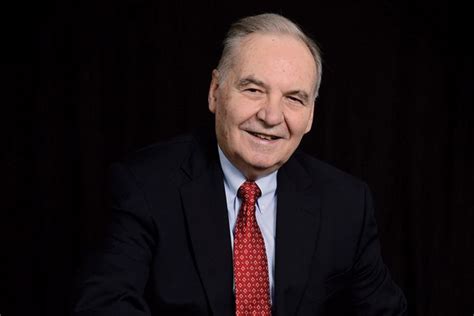A Quote by Ravi Zacharias
You cannot have a boundary-less existence, because your neighbor has his own boundaries, and who is going to give you the ethics between the two boundaries? If there is no objective moral law, relativism will take hold, and relativism ultimately will lead to self-destruction.
Related Quotes
Eros is an issue of boundaries. He exists because certain boundaries do. In the interval between reach and grasp, between glance and counterglance, between ‘I love you’ and ‘I love you too,’ the absent presence of desire comes alive. But the boundaries of time and glance and I love you are only aftershocks of the main, inevitable boundary that creates Eros: the boundary of flesh and self between you and me. And it is only, suddenly, at the moment when I would dissolve that boundary, I realize I never can.
Why are people so concerned with relativism? If you look back in history, millions of people were killed because of someone's dogmatic views, but I do not remember anybody being killed due to the tolerance of difference, to relativism; ethically relativism does not seem to be such an awful thing, really.
If you are self-motivated, wow, this world is tailored for you. The boundaries are all gone. But if you're not self-motivated, this world will be a challenge because the walls, ceilings and floors that protected people are also disappearing. That is what I mean when I say "it is a 401(k) world." Government will do less for you. Companies will do less for you. Unions can do less for you. There will be fewer limits, but also fewer guarantees. Your specific contribution will define your specific benefits much more. Just showing up will not cut it.
One who knows not what his rights are can never know when they are taken and is unable to defend them. He is like a man who believes he owns a piece of ground which his neighbor also claims, but he doesn't know its boundaries. The neighbor continues to encroach further and further onto land he suspects is his, but since he is never certain where the boundary is, he cannot check the advance. Until he takes a firm position and says: "this far and no further," there is no line.
That all opposites—such as mass and energy, subject and object, life and death—are so much each other that they are perfectly inseparable, still strikes most of us as hard to believe. But this is only because we accept as real the boundary line between the opposites. It is, recall, the boundaries themselves which create the seeming existence of separate opposites. To put it plainly, to say that "ultimate reality is a unity of opposites" is actually to say that in ultimate reality there are no boundaries. Anywhere.
Boundaries emerge from deep within. They are connected to letting go of guilt and shame, and to changing our beliefs about what we deserve. As our thinking about this becomes clearer, so will our boundaries. Boundaries are also connected to a Higher Timing than our own. We’ll set a limit when we’re ready, and not a moment before. So will others. There’s something magical about reaching that point of becoming ready to set a limit. We know we mean what we say; others take us seriously too. Things change, not because we’re controlling others, but because we’ve changed.

































